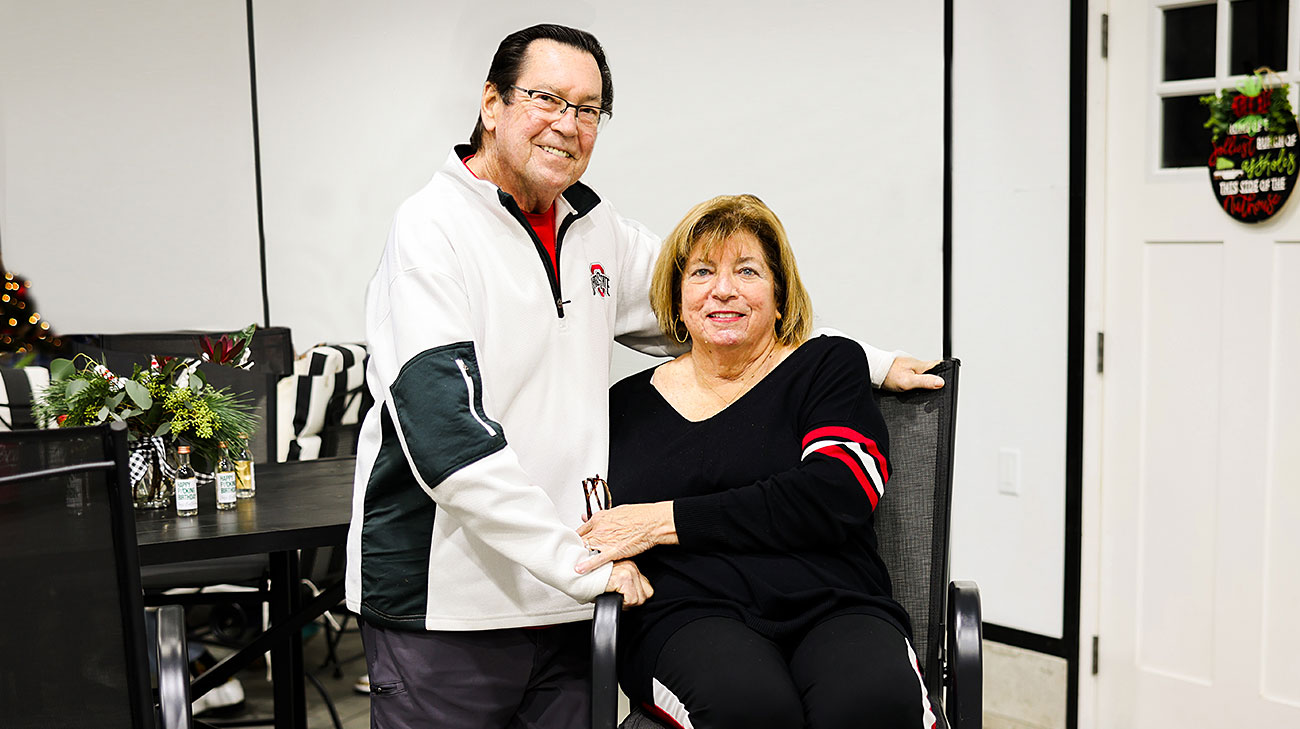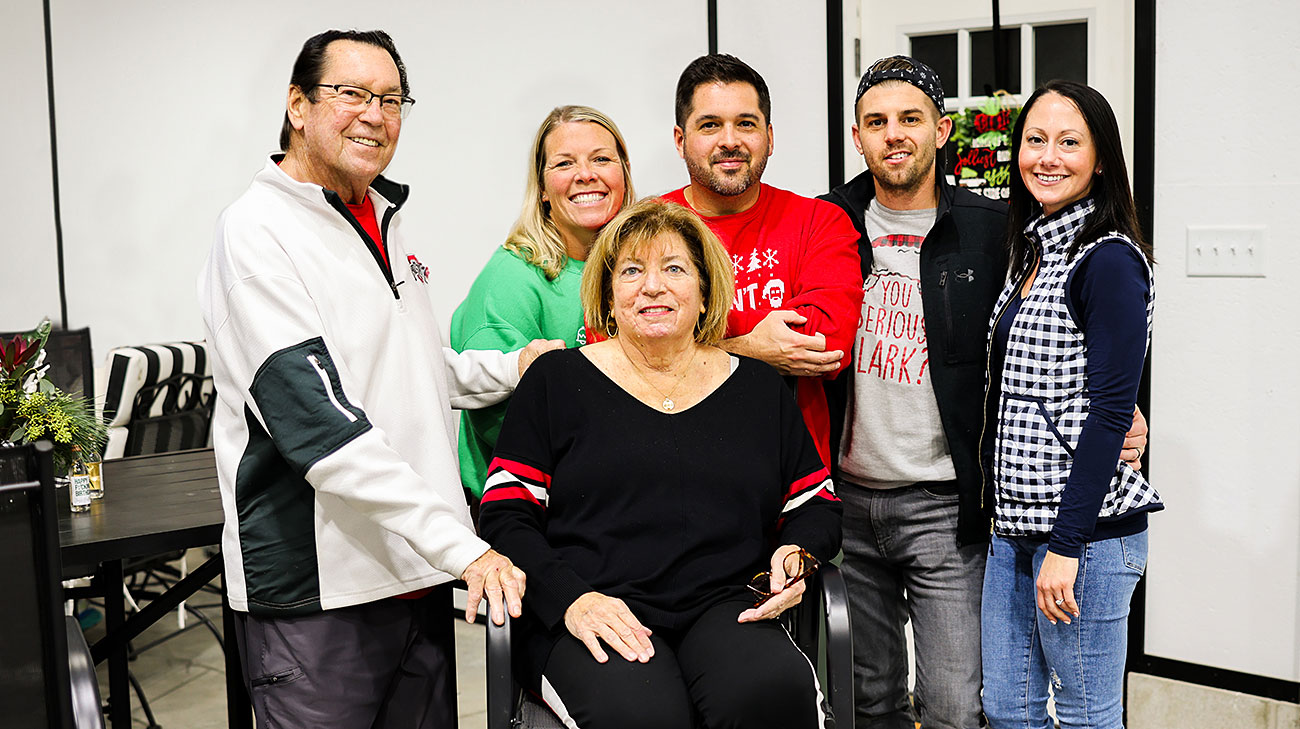
Deborah Persinger and her husband, Steve, bounced around the U.S. because of Steve’s career. The Ashtabula natives eventually settled southwest of Toledo in Whitehouse, Ohio. Family-oriented Deborah, now 70, was happy to raise their two sons closer to family in Ohio.
In 2010, a bout of bronchitis that wouldn’t subside led to a series of X-rays and tests, but those didn’t reveal a cause for her symptoms. Eventually, a local thoracic surgeon diagnosed Deborah with lung cancer and told her she had a 15% chance of five-year survival.
“When the doctor gave me the survival rate, I immediately told my husband to get me to Cleveland Clinic. I knew it was the only hospital that would give me hope,” recalls Deborah.
Since that day, Deborah has made the four-hour round-trip commute to continue her medical care at Cleveland Clinic. She had surgery to remove the cancerous parts of her lung, and radiation and chemotherapy multiple times over the years when the cancer returned. Deborah also has regular MRIs to monitor the cancer.
In 2015, an MRI detected eight brain lesions — also known as brain metastases. “Brain lesions happen when cancer cells break away from their original location and spread to the brain,” explains Lilyana Angelov, MD, a neurosurgeon and Director of Cleveland Clinic’s Gamma Knife Center. “In Deborah’s case, the lesions were driven by her lung cancer.”
Deborah's brain lesions were treated with gamma knife surgery which, despite the name, is not surgery. It is a minimally invasive procedure that uses targeted, high-energy radiation therapy to pinpoint and destroy brain lesions or keep them from growing — and it doesn’t hurt healthy brain tissue.
“It’s a very easy procedure that literally zaps the lesions and it hasn’t caused any side effects for me,” says Deborah.

Before Deborah’s first treatment, a custom mask was made by warming up a piece of lightweight, breathable mesh and placing it over her forehead, eyes, cheeks and chin to form a mold of her face. The nose area was cut out for breathing ease. The mask keeps Deborah’s head steady during the procedures in order to target the areas for treatment with complete precision.
Once she puts the mask on, Deborah lies on a flat bed and a mark is placed on the tip of her nose. A camera monitors this mark to ensure there is no movement and it can take images of the lesions to adjust treatment if necessary. The bed then moves into a tube for treatment. Deborah can speak to caregivers through an intercom and is observed through a camera. She can take a nap or listen to music for the duration of her treatment. The treatment effects may take several weeks.
“The Elekta Esprit Gamma Knife machine is like a Ferrari, it’s the best of the best when it comes to noninvasive treatment for patients who have brain lesions and tumors. It’s the only one in Ohio and there are only four others in the U.S.,” explains Dr. Angelov.
To date in November 2023, Deborah has had 24 metastases treated with gamma knife surgery over the course of 2016, 2020, 2021 and 2023.
“Deborah is a total champ who faces challenges head-on and sails through treatment. She’s a vibrant soul who loves to laugh and lives an energetic life. She’s not just a patient, she’s become a friend through the years,” says Dr. Angelov.
Despite the recurring brain lesions, Deborah is thriving. She has regular MRIs and checkups with Dr. Angelov to catch the lesions early. Because of the gamma knife surgery, Deborah continues to cheer on the Cleveland Browns and shelters in Florida from the Ohio snow during the winter. Most importantly, she spends time with her family and plays with her two granddaughters whenever she can.
“I’m glad Dr. Angelov has been with me this whole time. I can talk to her like a sister. I trust her and she explains things from a perspective I can understand,” says Deborah. “I have all the faith in the world in Cleveland Clinic. They’re on the cutting edge of everything when it comes to your healthcare.”
Related Institutes: Cleveland Clinic Cancer Center, Neurological Institute

